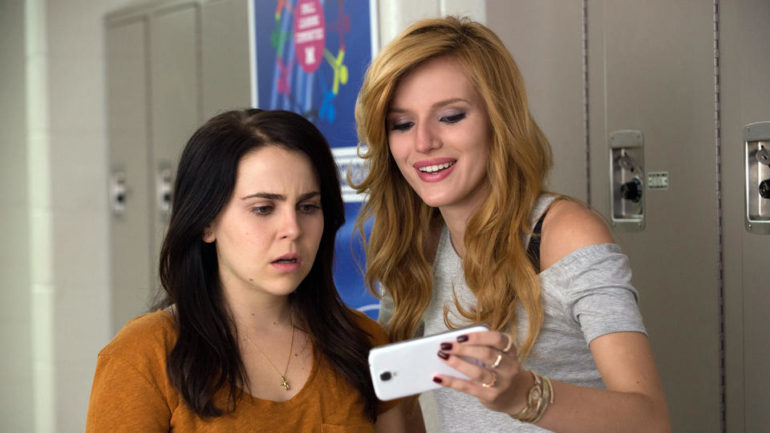The opening 40 seconds of The Duff leave you wishing you were somewhere else. A deserted island, an abandoned steel mill, or the back of heavily packed articulated vehicle, the specifics do not matter; merely somewhere, anywhere, else. A place that is a comfortable distance from that which is about to unfold before your eyes, from an experience that appears akin to a kind of slow, painful, cinematically-induced death. It seems to capture all the most insipid aspects of modern filmmaking at one fell swoop, where twentysomething actors are stand-ins for the teens of today and the most basic exposition is laid out in the most basic of manners: hokey voiceover narration. Worst of all, it stands as a marker of the industry’s insiduous, consumer-driven marketing with hashtags incorporated into the opening credits. Are we really to expect anything more from another high-school drama?”
History would tell us ‘yes’ for, though mid-tier output of the subgenre have been plaguing our screens for decades, there remain a few gems scattered throughout. The ’80s saw, of course, the colourful John Hughes burst through, while the ’90s welcomed a cycle of literary adaptations sharply updated to a contemporary setting a la Clueless. The pinnacle of all this is reached in 2004 with the splendidly witty, Tina Fey-scripted Mean Girls, a film that transcends the rigid conventions of the high-school flick in managing to comment upon, critique and then substantially influence the cultural zeitgeist from which it was emerged. Sitting in an half-empty cinema on dreary March morning, my mind wanders to that film and its poised balancing of wit and wisdom that is so rarely attained in teen movies. I think of how far we’ve come since then, and, looking down at my watch, how far we’ve left to go.
And then it hits you, like a giant hand emerging from the screen and shaking you in your seat. Yes, on the surface, The Duff may seem crass, artificial and trashy, but undermining each of these facets is an underlying intelligence, a self-awareness that forces you to reevaluate this middle-American high-school setting and the characters that inhabit it. The tropes and conventions are all there, but are delivered with a subtle twist. Our leading lady, for instance, is the everyman, or everywoman, we’ve come to expect from films of this type; moderately popular, but a definite outsider to the upper echilons of the school’s social hierarchy. But then again, Bianca (Mae Whitman) is only conventional in as much as a goofy, rambunctious, fall-over-herself sort of gal can be. The daughter of an empowered, self-help seminaring mother, Bianca has penchant for gory horror and two best friends who embody the same form of diverse identity that she does. The only problem is that they are markedly more attractive than her, a point that, according to the strict social codes of this environment, makes her a D.U.F.F, or, unabbreviated, a ‘Designated Ugly Fat Friend’, a mere confidence-buffer to her prettier pals. Who knew that kids could be so harsh? (Answer: We all did).
Operating on the level of humourous social critique is where this film works best, as it scopes the ridiculous character templates of the school scene and the impossibility of adhering to them. The jock is occasionally acerbic while the dreamy guitarist is actually vapid and talentless. But it is only when Bianca removes herself from the bizarre structure that she comes to realise the absolute nullity of these identies. Though The Duff may not offer the most radical or subversive account of teendom, though many of its one-liners fall flat when delivered by those other than Whitman, it exhibits the smarts to distance it from the pack, veering away from the dull ‘beauty is subjective’ sermonising and actually saying something with a bit more substance.
But for all this, it’s Whitman who steals the show with a comedic turn that just might rival the top of her class in years to come. She oozes on-screen charisma in a manner that makes you question how she carried the consumate blandness of Arrested Development’s Ann Veal with such relative ease. She ultimately outshines a film that strays towards the formulaic in its closing quarter, but is, nonetheless, heartfelt and enjoyable. It may just take you by surprise, but maybe if you skip the first forty seconds.

